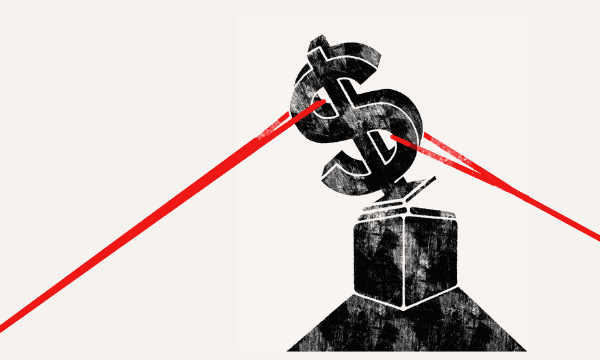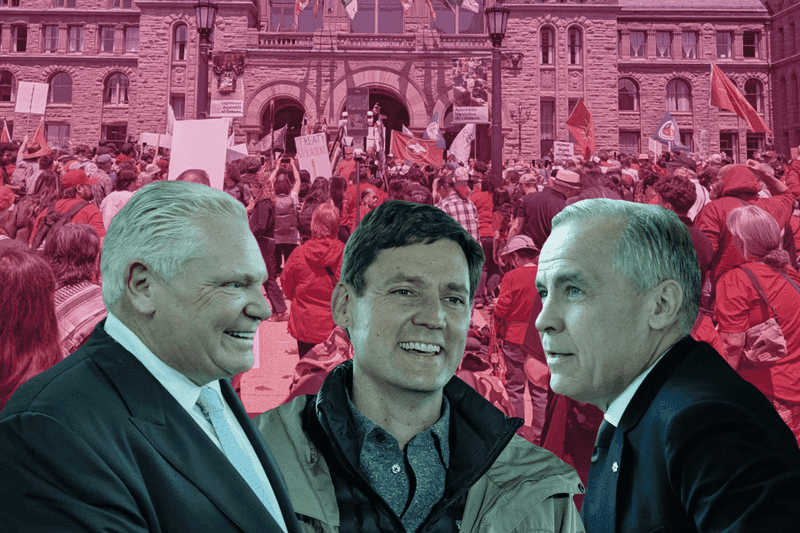
“We cannot ‘Build Back Better’ because what was built was never for us - only from us.” This essay is part of the “Debt Justice Agenda” series of Progressive International’s Debt Justice Blueprint.
Looking back to look forward: The legacy of structural adjustment in Africa
The pandemic continues to uncover deep structural flaws in the way our economy has been designed, raising fresh questions about how it is operated, who governs it, who is set to benefit, and who is not. . The pandemic continues to show us that we cannot continue to put profit before lives.
For years we continue to uphold inequality in the name of economic growth of a select few - a select few individuals in a select few countries. While the ‘Africa is rising’ boom, for example, was characterised by stories of economic growth and development, this growth did not necessarily materially improve their lives.
These years sat against the backdrop of World Bank and IMF structural adjustment programmes (SAP’s) throughout the 1980s and 1990s, which decimated economies, societies and communities. This saw the privatisation of public services and goods, and the drastic cuts to public spending, leaving citizens to fend for themselves and breaching a social contract that had begun to form immediately post independence for many countries. All of this was carried out in the name of ‘structurally adjusting’ economies with conditions to repay loans - and, crucially, repay creditors.
Indeed, decades on, as we navigate through the pandemic, Africa faces an augmented debt crisis; one that has gradually shifted to a large and growing proportion of Africa’s debt moving to private creditors. This can be directly linked to international financial institution (IFI) policies that push countries towards private solutions for developmental problems, like theWorld Bank’s “Maximising finance for Development”, which Kinoti and Simeoni define as re-shaping the financial systems of developing countries so as to align with the diktats of global finance. Further, Africa has seen over investment in mega infrastructure that consistently prioritises the interests of private investors and creditors at the expense of social contracts and the expense of lives. - the increased debt servicing costs of which leave generations paying the price.
The damages of the SAP’s have not only continued to haunt us but have ensured that we have unequal footing in global spaces of power - always being extracted from and never replenished, seen or given fair chance, space or voice. We cannot therefore ‘Build Back Better’ because what was built was never for us - only from us.
‘Structural adjustment? We don’t do that anymore.’
The IMF Spring Meetings saw the Fund calling for measures like government investment and wealth taxes. And yet the propensity for the IMF to support a progressive policies that often directly contradict its programmatic agenda is far from new.
In 2014, when asked about the legacy of structural adjustment programmes, Christine Lagarde responded saying: “Structural adjustment? That was before my time, I have no idea what it is. We don’t do that anymore.” This, despite the Arab NGO Network for Development concluding earlier that year that IMF policies in many Middle Eastern countries were still rooted in fiscal consolidation and privatisation.
In 2016, the IMF made headlines again after it published a paper entitled ‘Neoliberalism: Oversold?’, articulating how capital account liberalisation and austerity have contributed to inequality. However, analysis from the GDP Centre found that IMF-required austerity did not diminish in intensity after the last financial crisis.
When the pandemic hit, the IMF called for spending to protect jobs and incomes, and deployed emergency loans without typical conditions. While this is a welcome deviation from the norm, as Lara Merling points out, “while the Fund touted one trillion dollars in available resources, it has only disbursed about 30 billion through emergency lending”, meaning “a far greater share of IMF resources will be used in the coming years through traditional loan programmes.”
We need a root to branch transformation of IMF policies in its programmes. Without this, the Fund simply leaves the door open for rich countries to enact progressive policy agendas should they wish, while demanding the same failed approach from poor countries, paving the way for the poor to continue to shoulder the cost by locking countries into cycles of debt with harmful strings attached.
In the face of the climate crisis, we need systems change
Intrinsically linked to the inequality crisis, the causes and distributional impacts of climate breakdown are unevenly felt, leaving, as Harpreet Kaur Paul notes, those most responsible for climate change “relatively insulated from its impacts” while “those least responsible are stripped of basic freedoms and dignity.”
The current model of debt management is failing. Change is particularly critical in the face of the climate crisis, which changes everything, and time is fast running out to avoid irreversible breakdown. States face ferocious storms, prolonged droughts, rising sea levels, crop failures, and devastating floods. In Dominica alone, the total damages and losses from Hurricane Maria were estimated at 330 percent of GDP.
The case of Mozambique provides an apt illustration of the failures designed into the current model. Mozambique already experienced an “illegitimate” debt crisis, after loans were given to three state owned companies by the London branches of Credit Suisse and VTB in 2013 and 2014, which were not agreed by the Mozambican parliament, making them illegal. Following the devastation of Cyclone Idai 2019, while the country was already suffering from a debt build up facilitated by London-based banks, rather than providing debt relief, the IMF approved a loan for Mozambique of $118 million.
Moreover, there is a concern that some of the most corrosive elements of the status quo will be doubled down on, repackaged as a green agenda, as the World Bank’s support for infrastructure as an asset class, often pushed under the guise of achieving the Sustainable Development Goals (SDGs), demonstrates. We need to remake our model, and we need to do it urgently — or poor climate-vulnerable states and regions in the Global South will be locked decades more of cycles of debt for the sins of their richer neighbours.
From extraction to debt justice
The architecture of the international economic governance surrounding debt requires a radical rethink. This comprehensive analysis sits outside the limited capacity of this blog. Instead, we point to just some of the many steps the IMF and others should take now to address the multiple and intertwined crises facing indebted low-and middle-income countries, to help move towards an approach of debt justice.
IMF policies have often eroded sovereignty of indebted nations, undermining state-led progress to achieve the SDGs, and often prioritising the bailing out of creditors, leading to mammoth debt-servicing costs, which, as Dinah Musindarwezo notes, disproportionately harms women and minorities. The IMF’s actions should shift from one of mandating deficit reduction targets through conditions like fiscal consolidation, to providing space for states to choose how they want to invest in jobs and social protection through.
Similarly, the ideological drive towards privatisation, from state-owned companies to infrastructure and pensions, which the IMF and World Bank have a history of backing, left a trail of harm. As the ILO confirmed, the privatisation of public pension systems created returns to a small financial elite but diminished incomes of workers in retirement, while the World Bank’s concessional lending and grants divert funds towards private infrastructure investment strategies that place pressure on government finances, rather than “greater fiscal revenue mobilisation needed to address the rising rates of economic poverty and inequality.” Departing from the mantra of privatisation will require a systemic overhaul of the Bretton Woods Institutions’ engrained, flawed wisdom of economic development.
African civil society raised issues with the current structure of debt relief as not going far enough to move the needle on structural and systemic problems to safely seeing many economies through to the other side. The Africa Sovereign Debt Justice Network calls attention to areas such as the lack of transparency and accountability in debt contracts, lack of participation of citizens and all stakeholders in the debt contracting process at the national level, instead called for measures like producing a consensus on sovereign debt that “definitively seeks to overcome once and for all the distressed nature of sovereign debt”, including considering measures such as debt cancellation.
Further, the current approach to IMF bailouts has at times led to a colossal scale of capital flight, as demonstrated in Argentina in August 2019 when the then-opposition leader Alberto Fernández stated that of the $44.5 billion disbursed by the IMF, around $36.6 billion left through capital flight. Argentina’s Economy Minister since avowed that debt restructuring is “a necessary condition to be able to alleviate the capital controls”, which were brought in to ease the scale of the crisis.
Noting the intrinsic risks to debt justice posed by climate breakdown, Jubilee Carribean called on the IMF to “use its rule-setting power to endorse a full debt moratorium once a hurricane or any other serious disaster brings destruction” and make sure that a “serious debt restructuring of all external commitments shall be possible under due consideration of our peoples’ human rights.” This could be supported by the creation of a fully independent debt workout mechanism, a global consensus on guidelines for debtor and creditor responsibilities, and increased loan transparency.. Measures like an independent debt workout mechanism are also important to assist in roll back of the Fund’s ‘mission creep’ institutional mandate.
Last, on governance, rich countries that rely on the IMF the least are vastly over-represented in voting power and, at times, provided a veto over major decisions, concentrating power in the hands of a few. This continues to replay an extractive and neo-colonial framework. As Fanwell Bokosi, director at Afrodad, says, “The IMF quota system still reflects the colonial mentality that prevailed at its establishment.” This necessitates urgent and dramatic structural transformation to rebalance power between the creditor-to-debtor nation states. There is also an urgent need to ensure there is meaningful space for citizens, trade unions and civil society groups from countries IMF programmes are implemented to be able to engage with and, crucially, influence decision making processes.
The world as we know it and the way we have organised the global economy is but a construct. It was created and it can be dismantled, and in its place create new realities that are more just and equal. Debt justice must rest at the heart of this, and achieving it will necessitate a radical departure from conventional wisdoms embedded into the debt management approaches of international financial institutions. The pandemic, by shining a spotlight on longer term fractures designed into our economy, provides a window of disruption to begin that change process.
Crystal Simeoni and Miriam Brett are members of the Progressive International Debt Justice Collective.
Miriam Brett is director of research and advocacy at Common Wealth UK.
Crystal Simeoni is director of NAWI: Afrifem Macroeconomics Collective.
Illustration by Namita Sunil. Namita is a New Delhi based illustrator and graphic artist.
From the Blueprint team at Progressive International
We live in a world of debt. The depth and breadth of global “debtification” is difficult to overstate. It is the primary contention of this collection that all these disparate dynamics — hedge funds raking in pandemic profits, students struggling to afford an education, micro-borrowers on the brink of bankruptcy — are different manifestations of the same basic structural mechanism at the heart of the global financial system: the endless cycle of privatized gains and socialized losses. Simply put, the rich get richer, while the poor, by design, remain poor.
The goal of this Collective is the goal of progressive movements around the world, to end that cycle. Read the full Debt Justice Blueprint here. If you’re interested in engaging with us, please write to the Varsha Gandikota-Nellutla, Blueprint Coordinator at [email protected].





